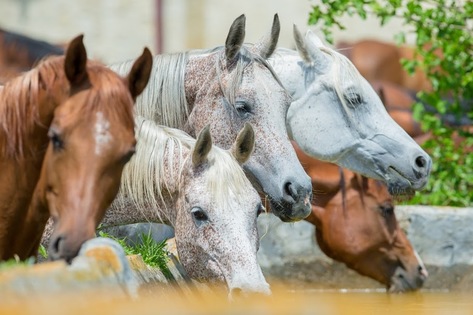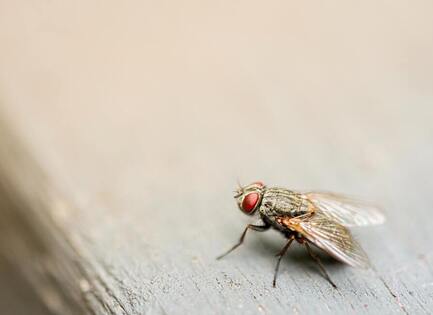
The Most Popular Horse Breeds Of 2019
Equestrian Advice & Guides General Equestrian
Build your business profile for FREE and expose your services to thousands of potential clients!
Create my profile now!
If I happen to come across a fly in my house, I'll do one of two things. I'll either do my impression of Terminator by going mad with the fly spray or wallop it with the daily newspaper. No matter how I get rid of them, it seems another one comes along shortly after. To say they're annoying is an understatement, but at least I have some control over them even though it can sometimes be brutal.
So how must a horse feel about the pesky, irritating little blighters? After all, it's not as if they can grab a can of fly killer from under the sink and rage war on the bothersome pests. All our four-legged friends have in their armory is a tail to swish them away, hardly a weapon of mass destruction. The hot weather is like an alarm call for flies to go out and make a nuisance of themselves. They get on our food, land in our drinks, and even have the nerve to land on our heads. And they do all this after they've probably just finished feeding in garbage and filth such as feces.
It goes without saying that something that has been dining off something so revolting will carry disease around with them. You might be surprised to hear that they can carry at least sixty-five illnesses, all of which can infect humans. These include such ailments as diarrhea, food poisoning, dysentery, and eye infections such as conjunctivitis.
Horses don't escape the wrath of the fly either. One of the common problems they face in the summer months when horse flies are rife is when these disease-ridden insects deposit Habronema Larvae into horses' open wounds or eyes. As this larva makes its way through the tissue, it causes open sores on the horse's flesh. Not pleasant, but very common.
We may not be able to arm our horsey friend with a can of fly spray, but there are certain things we can do to make their lives more bearable at the time of year when the problem of flies is more prominent. The first option, being a fly mask, these can be bought from various retailers, some doubling up with UV protection. Petz.co.uk have reviewed various products that have helped manage flies around your horse and stable, for more information feel free to check out their equestrian articles.
If you prefer to go down the natural route, then good old vinegar is a great weapon of choice. This amazing liquid has no bounds, it seems, to what it can do to help around the home and other places. There are two ways of using vinegar to deter flies: feed, the other as a spray. If you're going to use it as a feed, make sure it's a food quality apple cider type.
All your horse will need is between two and four ounces a day. This can be either mixed in with his hay or feed or added to your horses drinking water at a ratio of one cup of the vinegar to twenty gallons of water. If you opt for the spray, then mix one-part vinegar to one-part water. You can also use distilled white vinegar for the spray.
Fly parasites are another great way of controlling infestation and are great when used around barns and stables. These tiny burrowing insects are a natural enemy to many different species of fly. They are completely safe to use as they don't bite humans or animals. To put them to use, all you need to do is sprinkle them on manure piles, any areas that are wet, along the fence lines in grazing areas, and anywhere else where you're likely to find rotting vegetation or manure. They eliminate flies before they have evolved by killing them in the maggot and pupa stages of the life cycle.
The parasite solution should be used alongside a daily routine of manure management. Make sure any wet bedding or manure is removed from barns and stables each day. Taking away manure removes a source of food for flies, and because flies like to lay their eggs in a warm moist environment, taking away and regularly replacing bedding with help control your fly population.
They're a nuisance, but unfortunately a part of life in the summer and even more so around stables and barns where manure provides an abundance of food and moist warm surroundings are ideal for them to mass-produce. They can be controlled and even eliminated in some circumstances by using the methods mentioned. Try them out. Afterall, ourselves and our horses deserve a summer we can enjoy without constantly swinging around a newspaper or tail.
Check out our review on a fly repellent available at SmartPak.
